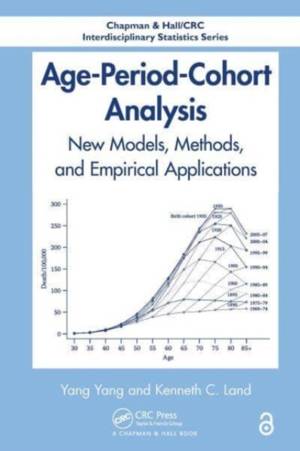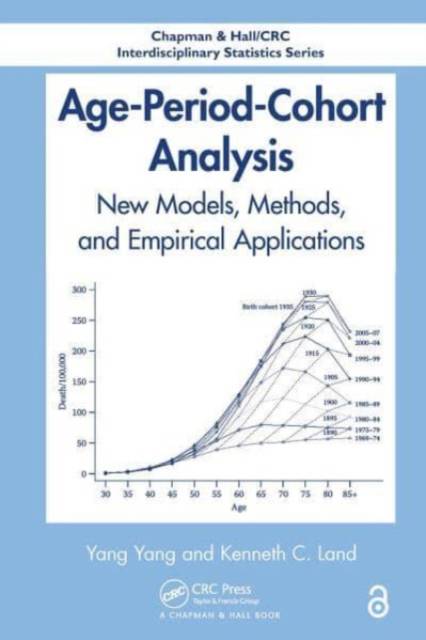
- Afhalen na 1 uur in een winkel met voorraad
- Gratis thuislevering in België vanaf € 30
- Ruim aanbod met 7 miljoen producten
- Afhalen na 1 uur in een winkel met voorraad
- Gratis thuislevering in België vanaf € 30
- Ruim aanbod met 7 miljoen producten
Age-Period-Cohort Analysis
New Models, Methods, and Empirical Applications
Yang Yang, Kenneth C LandOmschrijving
Age-Period-Cohort Analysis: New Models, Methods, and Empirical Applications is based on a decade of the authors' collaborative work in age-period-cohort (APC) analysis. Within a single, consistent HAPC-GLMM statistical modeling framework, the authors synthesize APC models and methods for three research designs: age-by-time period tables of population rates or proportions, repeated cross-section sample surveys, and accelerated longitudinal panel studies. The authors show how the empirical application of the models to various problems leads to many fascinating findings on how outcome variables develop along the age, period, and cohort dimensions.
The book makes two essential contributions to quantitative studies of time-related change. Through the introduction of the GLMM framework, it shows how innovative estimation methods and new model specifications can be used to tackle the "model identification problem" that has hampered the development and empirical application of APC analysis. The book also addresses the major criticism against APC analysis by explaining the use of new models within the GLMM framework to uncover mechanisms underlying age patterns and temporal trends.
Encompassing both methodological expositions and empirical studies, this book explores the ways in which statistical models, methods, and research designs can be used to open new possibilities for APC analysis. It compares new and existing models and methods and provides useful guidelines on how to conduct APC analysis. For empirical illustrations, the text incorporates examples from a variety of disciplines, such as sociology, demography, and epidemiology. Along with details on empirical analyses, software and programs to estimate the models are available on the book's web page.
Specificaties
Betrokkenen
- Auteur(s):
- Uitgeverij:
Inhoud
- Aantal bladzijden:
- 352
- Taal:
- Engels
- Reeks:
Eigenschappen
- Productcode (EAN):
- 9781032477503
- Verschijningsdatum:
- 21/01/2023
- Uitvoering:
- Paperback
- Formaat:
- Trade paperback (VS)
- Afmetingen:
- 156 mm x 233 mm
- Gewicht:
- 484 g

Alleen bij Standaard Boekhandel
Beoordelingen
We publiceren alleen reviews die voldoen aan de voorwaarden voor reviews. Bekijk onze voorwaarden voor reviews.











